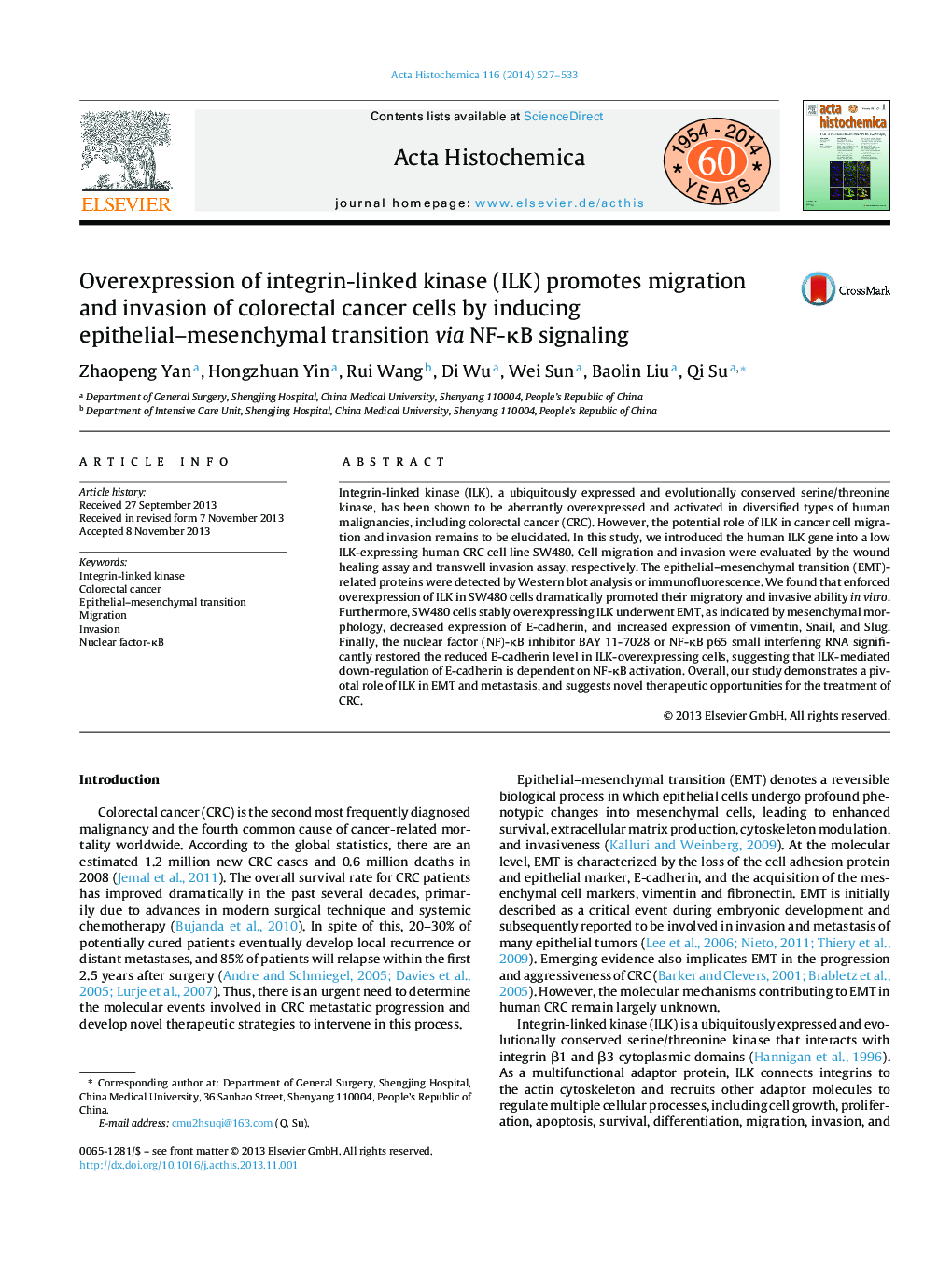| Article ID | Journal | Published Year | Pages | File Type |
|---|---|---|---|---|
| 1923560 | Acta Histochemica | 2014 | 7 Pages |
Integrin-linked kinase (ILK), a ubiquitously expressed and evolutionally conserved serine/threonine kinase, has been shown to be aberrantly overexpressed and activated in diversified types of human malignancies, including colorectal cancer (CRC). However, the potential role of ILK in cancer cell migration and invasion remains to be elucidated. In this study, we introduced the human ILK gene into a low ILK-expressing human CRC cell line SW480. Cell migration and invasion were evaluated by the wound healing assay and transwell invasion assay, respectively. The epithelial–mesenchymal transition (EMT)-related proteins were detected by Western blot analysis or immunofluorescence. We found that enforced overexpression of ILK in SW480 cells dramatically promoted their migratory and invasive ability in vitro. Furthermore, SW480 cells stably overexpressing ILK underwent EMT, as indicated by mesenchymal morphology, decreased expression of E-cadherin, and increased expression of vimentin, Snail, and Slug. Finally, the nuclear factor (NF)-κB inhibitor BAY 11-7028 or NF-κB p65 small interfering RNA significantly restored the reduced E-cadherin level in ILK-overexpressing cells, suggesting that ILK-mediated down-regulation of E-cadherin is dependent on NF-κB activation. Overall, our study demonstrates a pivotal role of ILK in EMT and metastasis, and suggests novel therapeutic opportunities for the treatment of CRC.
